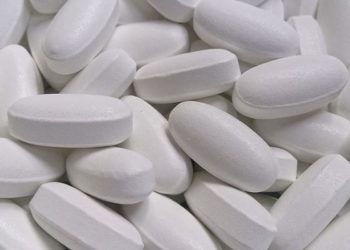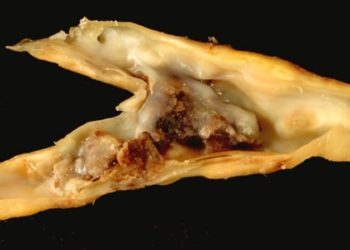The SPARCL trial: Atorvastatin reduces risk of stroke in patients with recent stroke or transient ischemic attack [Classics Series]
Image: CC/L. academia
1. In patients with recent stroke or TIA, high-dose atorvastatin significantly reduces the risk of fatal stroke compared to placebo
2. Atorvastatin was also associated with a significant reduction in risk of cardiovascular events
Original Date of Publication: August 10, 2006
Study Rundown: While the trial demonstrated that atorvastatin after stroke or TIA significantly reduced the risk of fatal stroke, there are several criticisms of this trial. One of the main criticisms of the study was the use of industry funding from Pfizer. Moreover, many of the contributors received consulting fees and grant support from various pharmaceutical companies. Lastly, the study was not powered to examine the effect on mortality. Nevertheless, the SPARCL trial has been influential, and has informed the AHA/ASA recommendation for statin therapy in patients with prior stroke and TIA.
In sum, statins should be considered in patients soon after a stroke or transient ischemic attack to reduce the risk of subsequent stroke and cardiovascular events.
In-Depth [randomized, controlled study]: Published in NEJM in 2006, the SPARCL trial sought to determine whether atorvastatin would reduce the incidence of stroke or cardiovascular events in patients with recent stroke or transient ischemic attack (TIA). A total of 4,731 patients were randomized to either the treatment group receiving 80 mg of atorvastatin per day or to the placebo group. The primary endpoint was the incidence of fatal or nonfatal stroke. A number of cardiovascular events were also measured as secondary outcomes. Patients were eligible for inclusion if they were 18 years of age and had an ischemic or hemorrhagic stroke or TIA in the 1-6 month period prior to randomization.
Patients were recruited from 205 different centres, and patients were followed for a mean of 4.9 years. Low-density lipoprotein (LDL) cholesterol levels were similar between the two groups at baseline and decreased by 53% in the atorvastatin group while remaining unchanged in the placebo group at one month after randomization. Atorvastatin was associated with a relative risk reduction of 16% for the primary end point of fatal or nonfatal stroke, which was significant according to the prespecified adjusted model. Notably, the atorvastatin group experienced a significant decrease in the risk of fatal strokes, compared to placebo. The statin was also associated with a significant reduction in risk of cardiovascular events, including nonfatal myocardial infarctions, acute coronary events, and revascularization. Interestingly, post-hoc analyses demonstrated that atorvastatin was linked with significantly higher risk of hemorrhagic stroke compared to placebo.
© 2012-2014 2minutemedicine.com. All rights reserved. No works may be reproduced without written consent from 2minutemedicine.com. Disclaimer: We present factual information directly from peer reviewed medical journals. No post should be construed as medical advice and is not intended as such by the authors or by 2minutemedicine.com. PLEASE SEE A HEALTHCARE PROVIDER IN YOUR AREA IF YOU SEEK MEDICAL ADVICE OF ANY SORT. Content is produced in accordance with fair use copyrights solely and strictly for the purpose of teaching, news and criticism. No benefit, monetary or otherwise, is realized by any participants or the owner of this domain.




